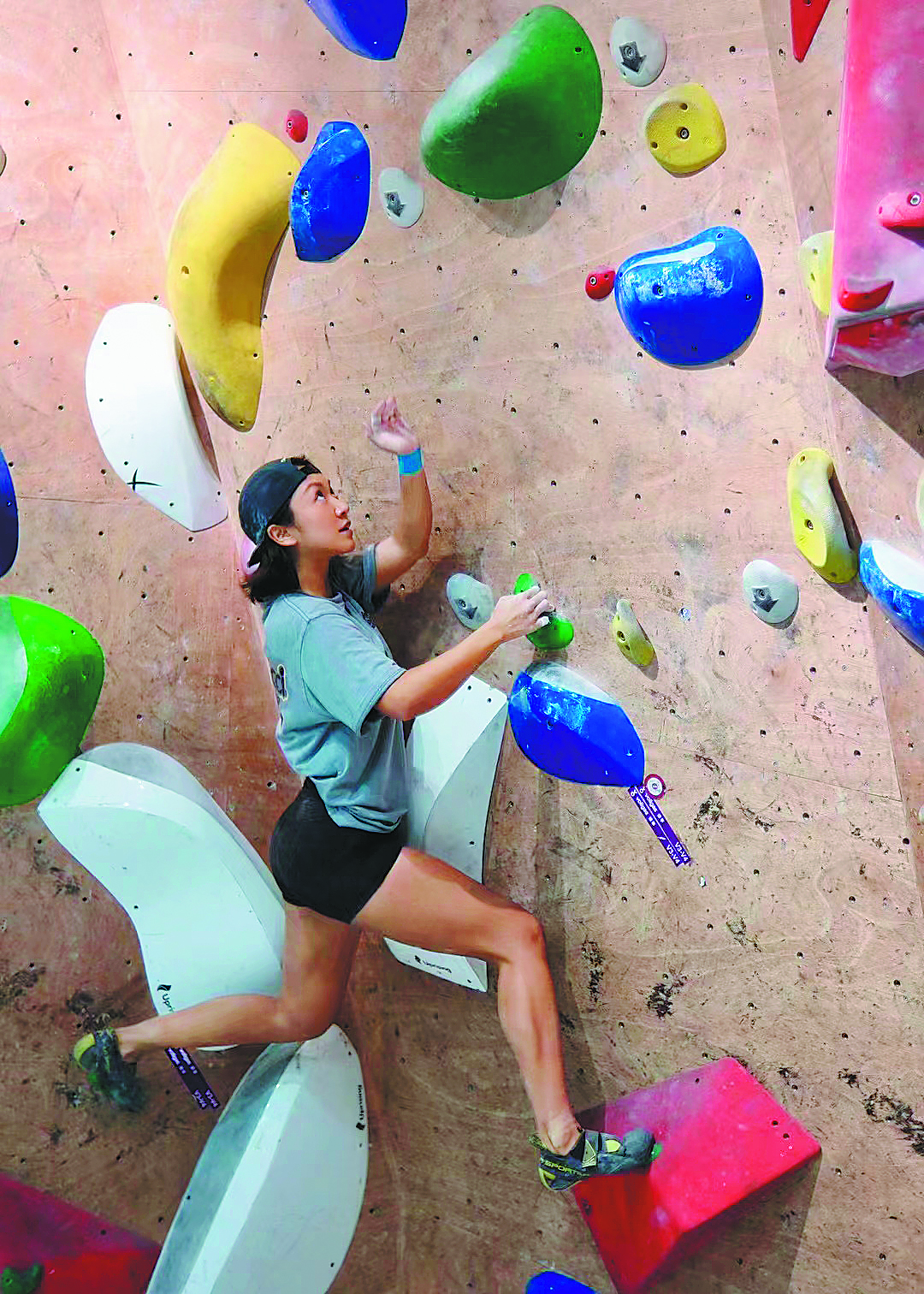After Chinese Olympic athletes secured a treasure trove of medals at the 2024 Paris Summer Olympics, the excitement surrounding their accomplishments triggered a surge in consumer demand across sports-related industries, particularly boosting the popularity of niche sports such as climbing, fencing and surfing.

A group of runners are seen at the Shanghai Elite 10K Race held by ASICS in Nanjing, Jiangsu province, on Sept 21. [Photo provided to China Daily]
Climbing, in particular, has captured the imagination of many, making its second appearance in the Olympics. After the Games, climbing has built itself a growing community of enthusiasts, leading to a surge in climbing gyms and rockclimbing walls nationwide.
In Beijing alone, there are currently over 50 climbing gyms/rockclimbing walls — hereafter referred to as climbing facilities — available at a wide price range, from daily admission rates of around 100 yuan ($14) to training sessions priced between 200 to 400 yuan per hour.
The appeal is strong among teenagers and beginners, who increasingly view climbing as both a physical and mental challenge.
Nationally, the trend is even more pronounced. The "2023 China Climbing Industry Analysis Report" from the Chinese Mountaineering Association revealed that, by the end of 2023, China had 636 commercial climbing facilities — surpassing the US for the first time, with a 31 percent increase in such venues compared to early 2022.
The rise of recreational climbing is also evident in the increasing demand for equipment.
Likewise, other niche sports are experiencing similar growth, with platforms like Meituan reporting significant search volume increases for tennis and archery. In Shanghai, Beijing, Shenzhen of Guangdong province, and other cities, sports training and group-buying deals have surged, with tennis training packages and archery sessions particularly popular.
As China's climbing industry continues its rapid growth, the rise of climbing facilities and the broader adoption of niche sports reflect how events like the Olympics can act as powerful catalysts for change — shaping both consumer behavior and the trajectory of the sports market.
According to Wei Junjie, general manager and founder of Rockhour Climbing, one of Beijing's iconic climbing facilities, the business has flourished post-Olympics.
"The number of climbing gyms in the city has increased, and our business is seeing steady growth, driven by a younger crowd," Wei said. "Social media played a vital role during and after the Olympics, helping extend the reach of climbing to mainstream markets."
Wei attributes the increasing interest in climbing to a wider societal focus on health and well-being.
"People today prioritize fitness, which is why niche sports like climbing are becoming more popular," he said.
To support this growth, his company has expanded its retail offerings both online and offline, providing climbing shoes, ropes and protective gear to serve growing demand from gym members. They sell climbing shoes and gear brands such as Scarpa and Mammut. The retail business has grown 50 percent so far this year compared with the same period last year, said Wei.
For individuals like Xu Xingyu — aka Da'e — as a fitness influencer and full-time graphic designer, climbing has become a passion.
Xu, who recently moved to Shanghai from Beijing, visits the climbing gym two to three times a week, balancing climbing with cycling and running.
"Climbing challenges me both physically and mentally — it sharpens my logic and mindset," said 29-year-old Xu.
However, her biggest takeaway from climbing has been learning the value of patience.
"I used to rush into advanced routes, which led to a back injury. After six months of recovery, I had to start over," she said.
"Now I observe and think before I climb. It's far more rewarding than just pushing myself up the routes without reflection."